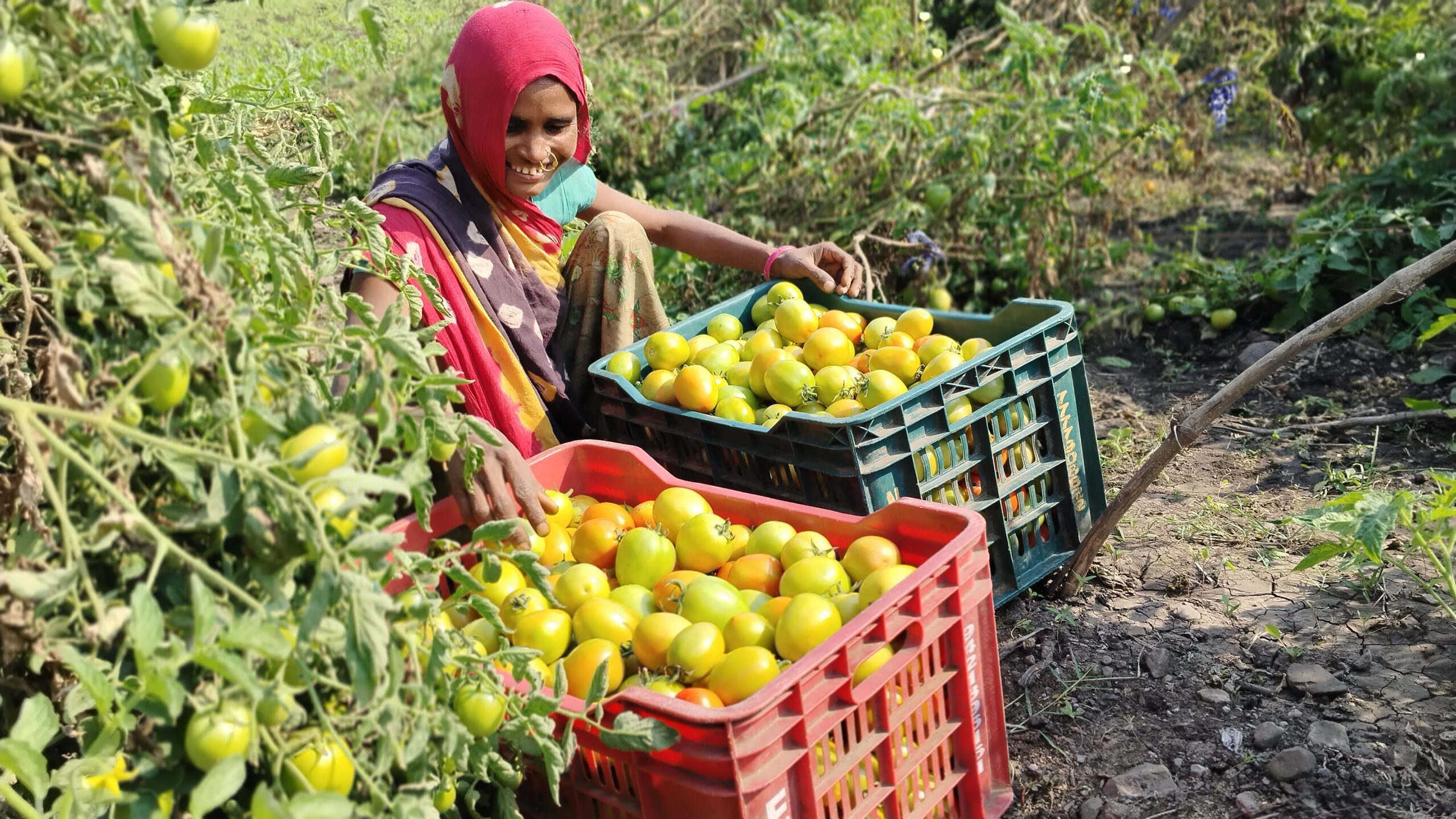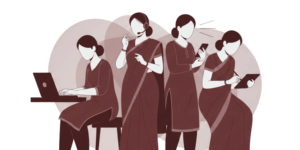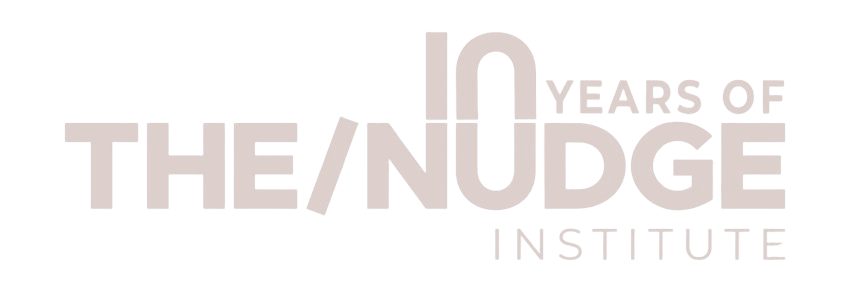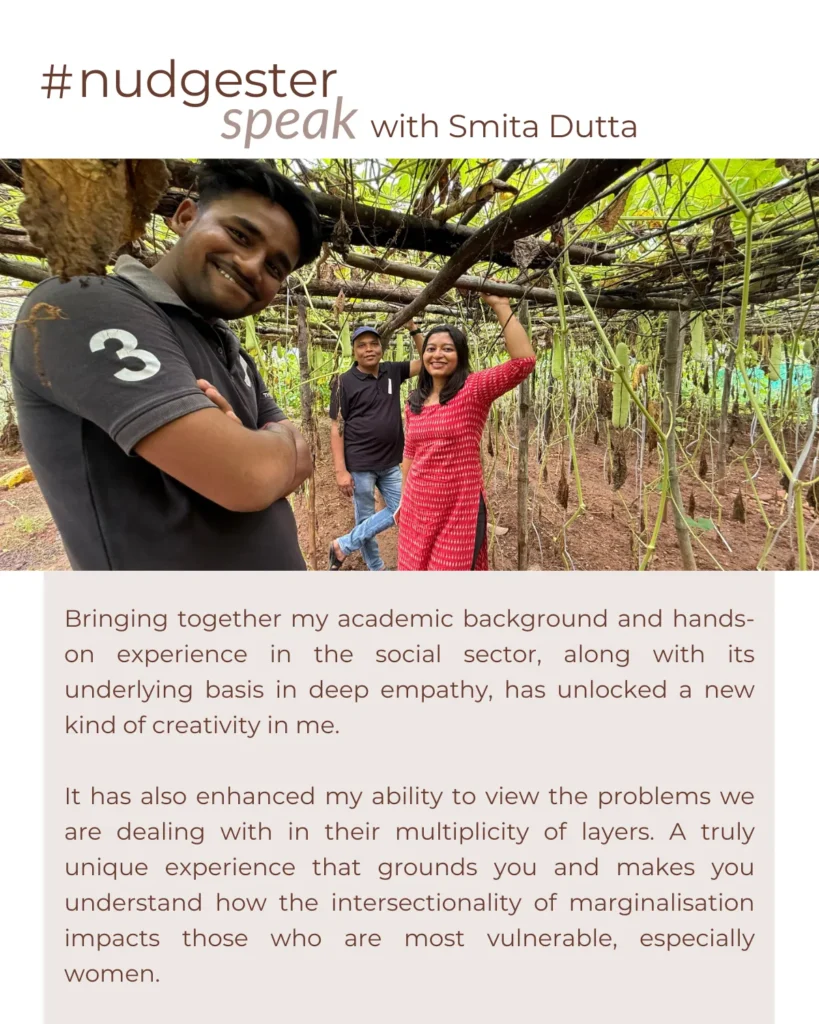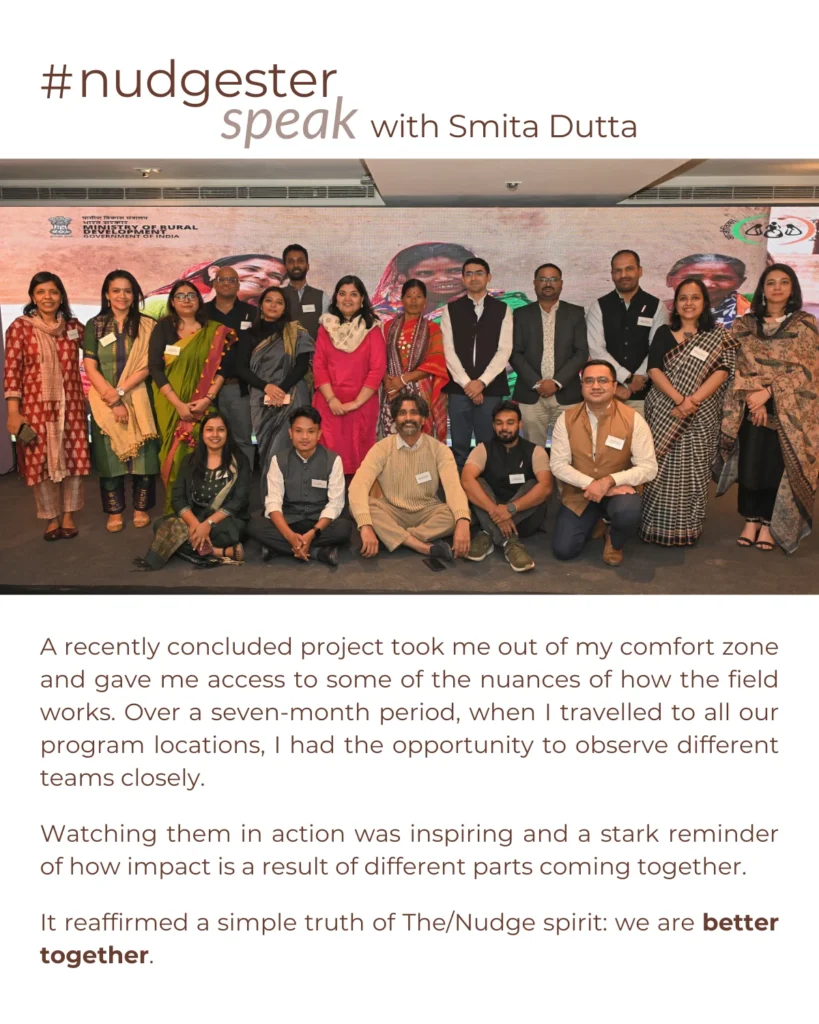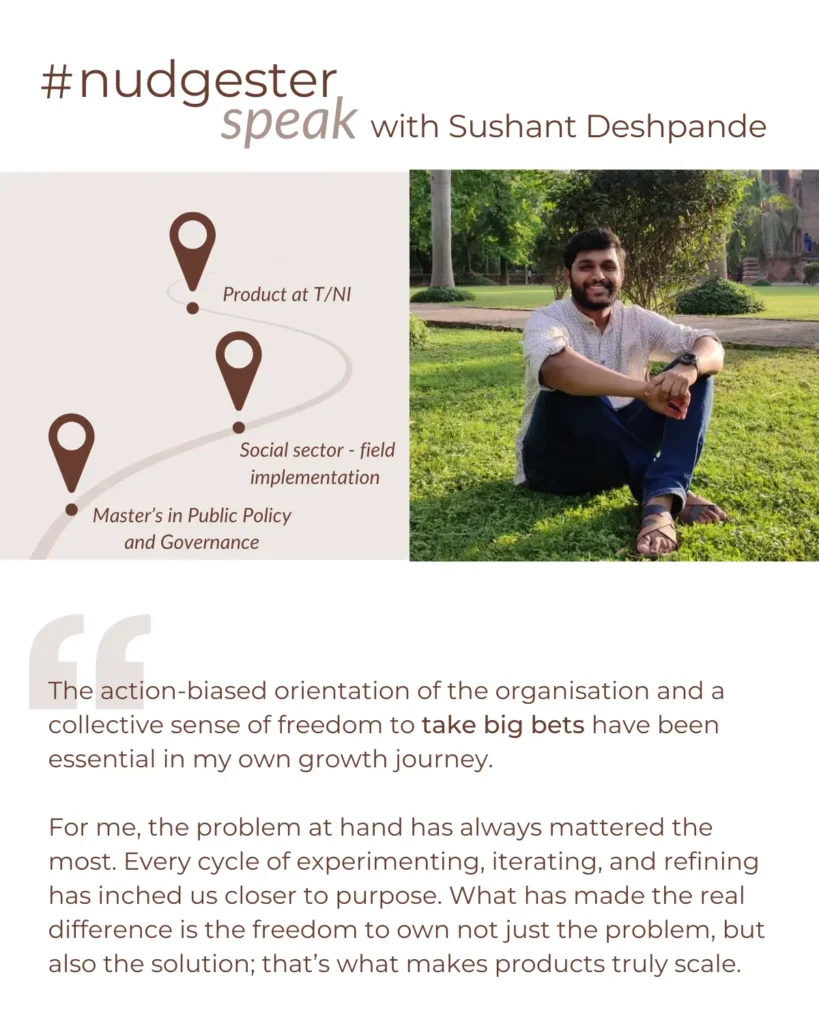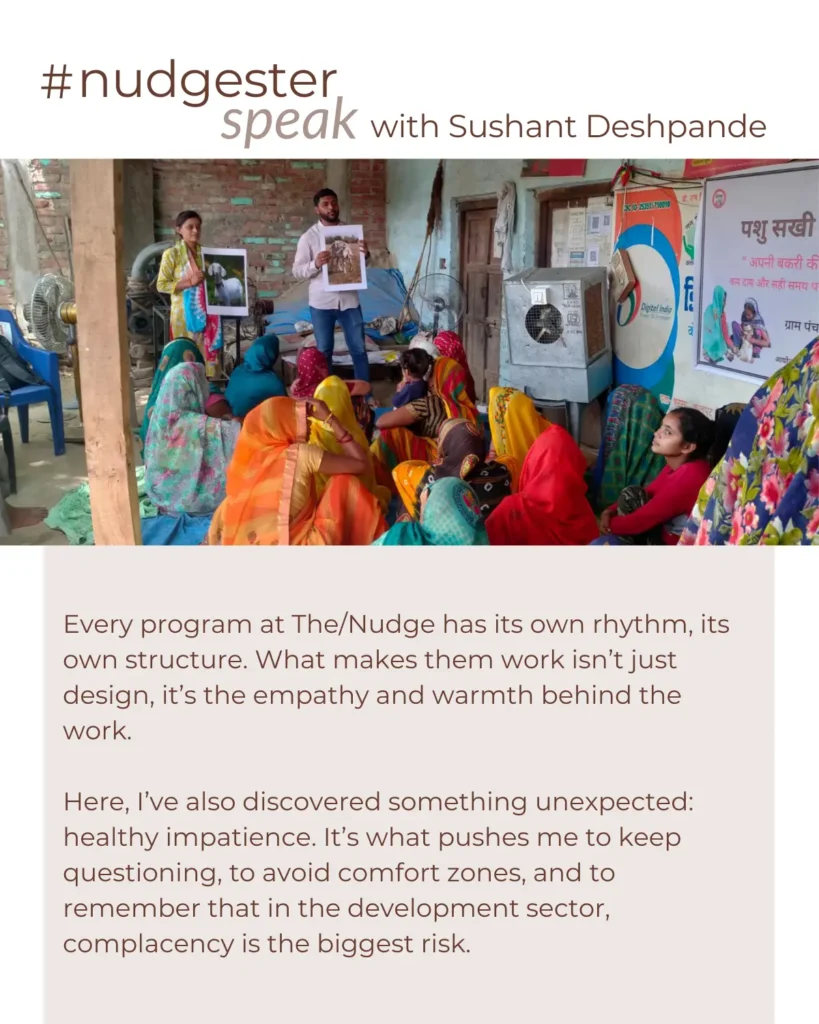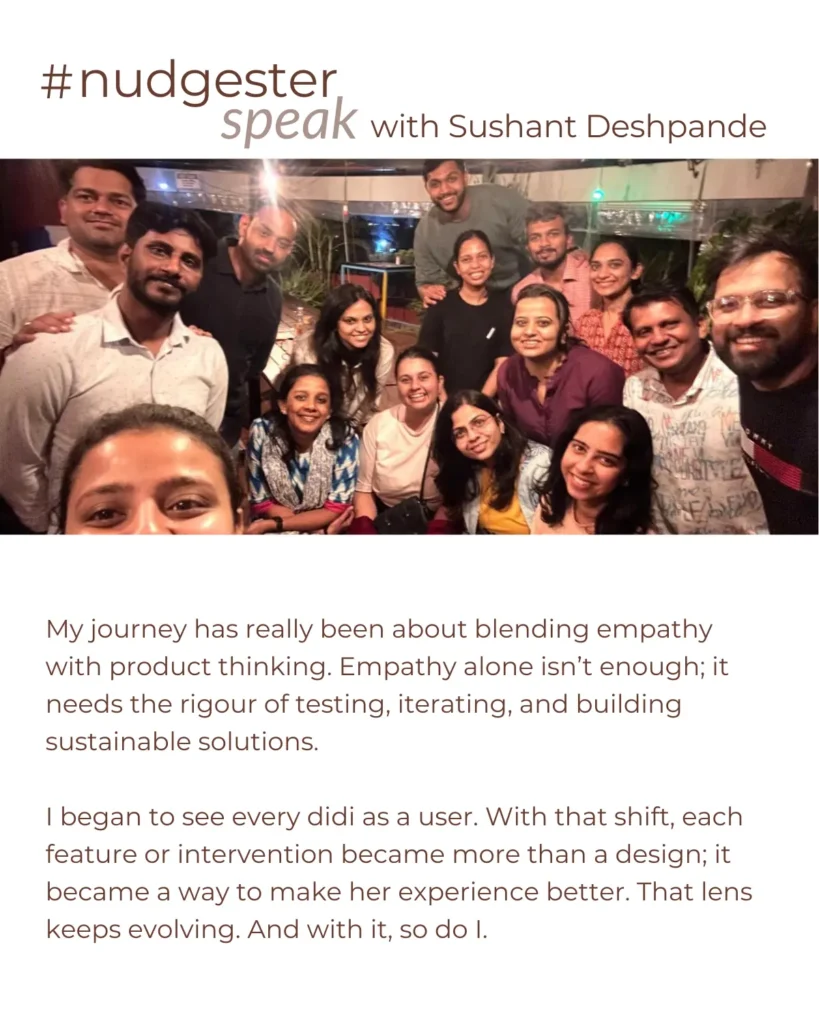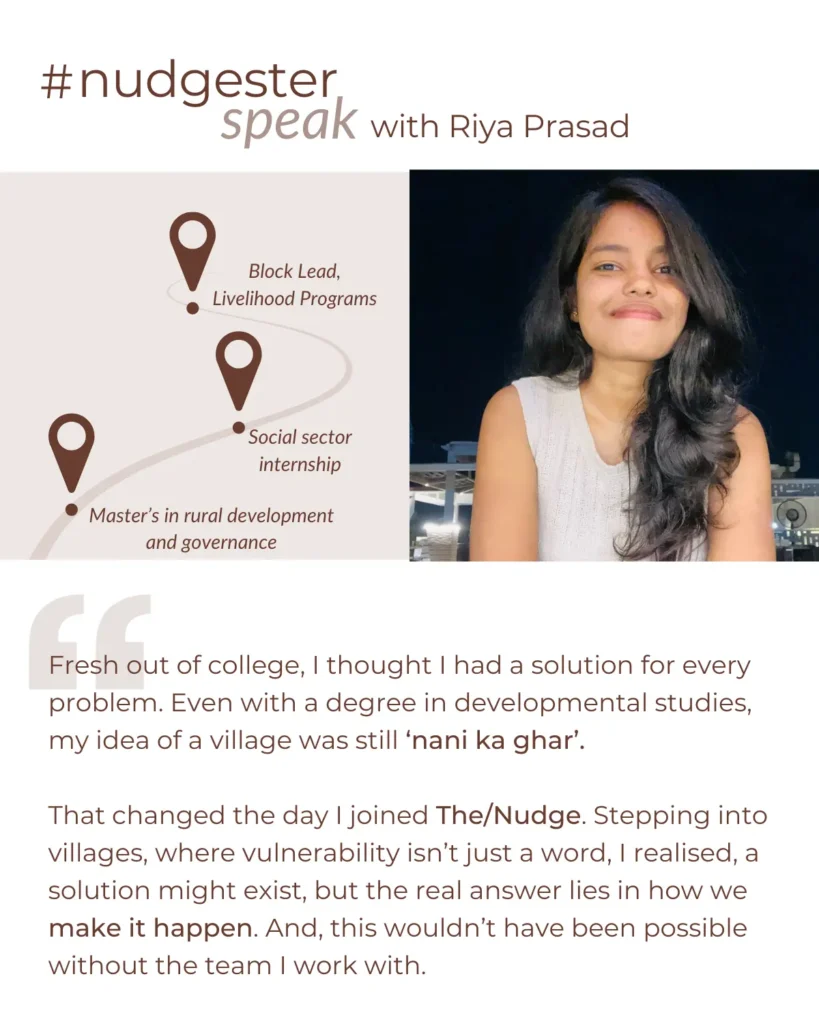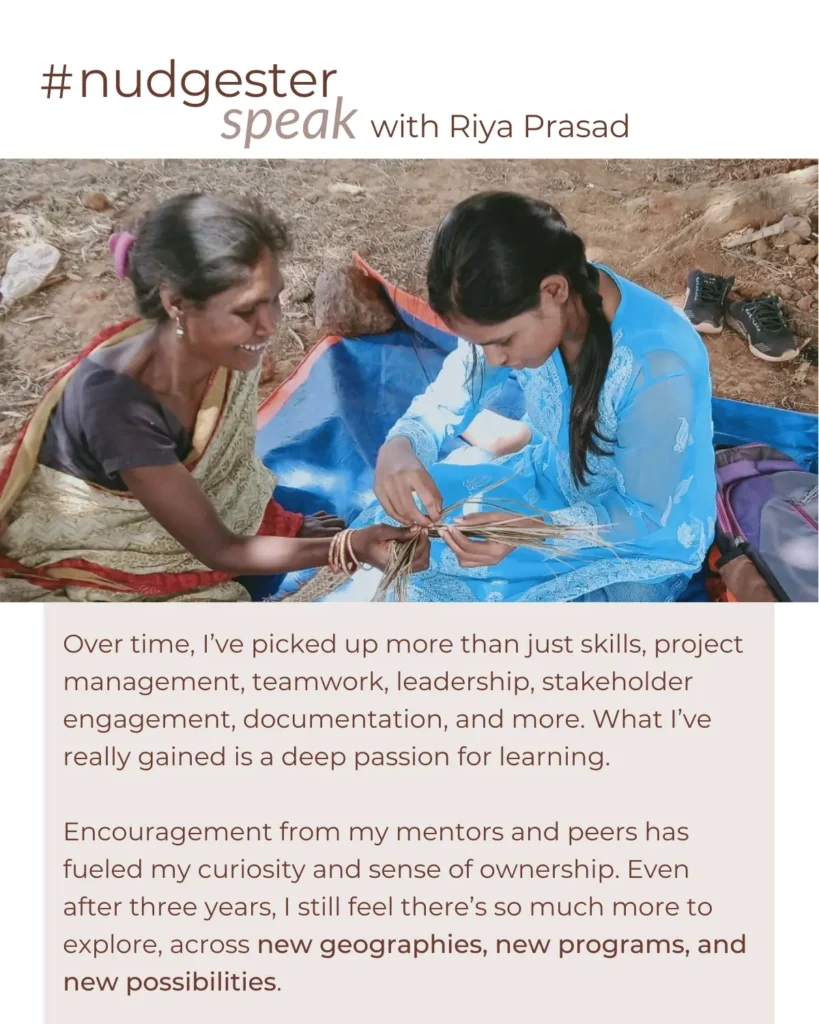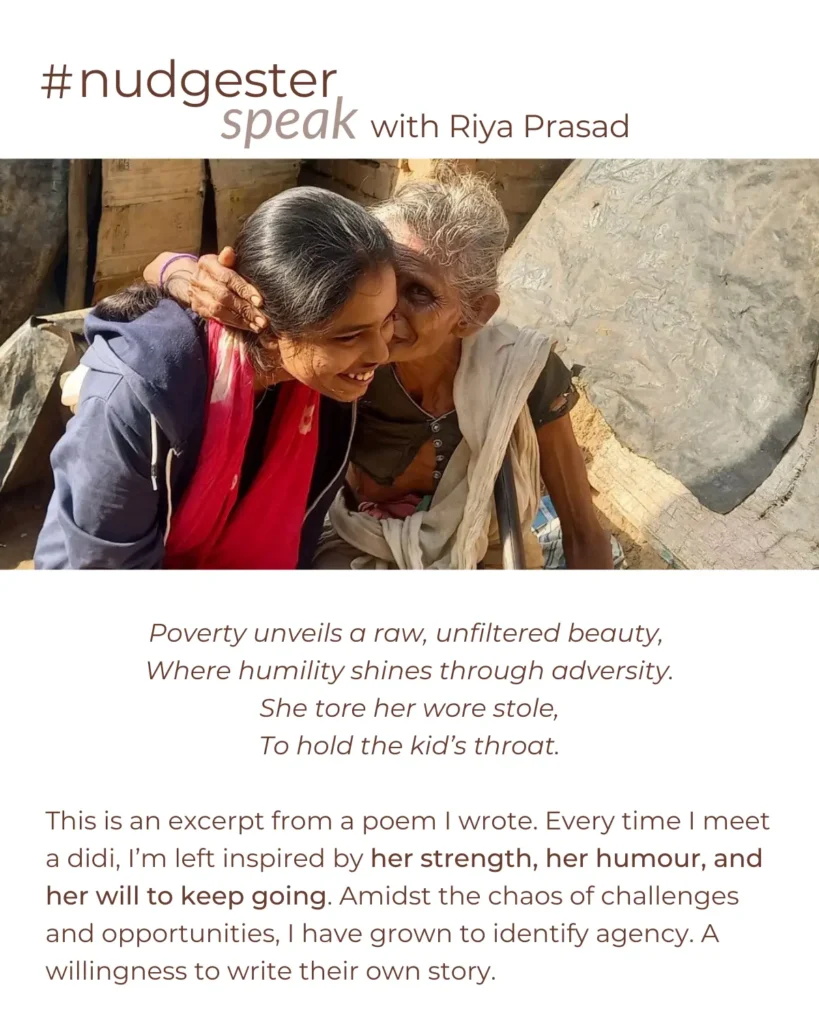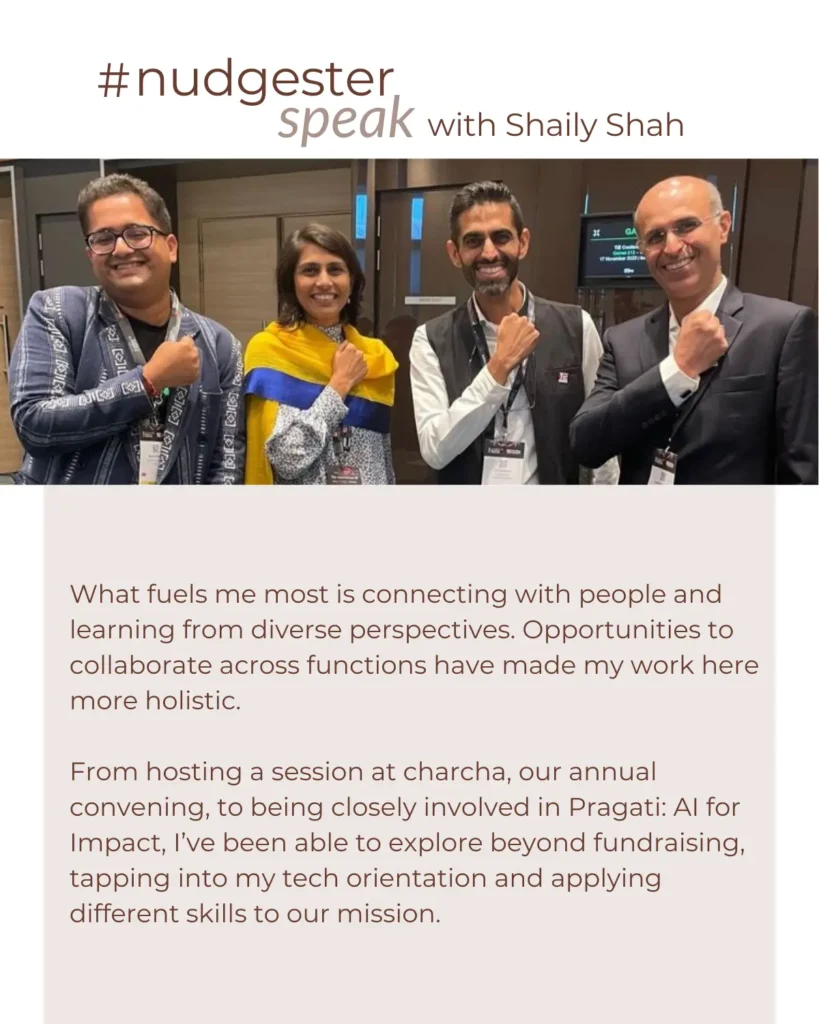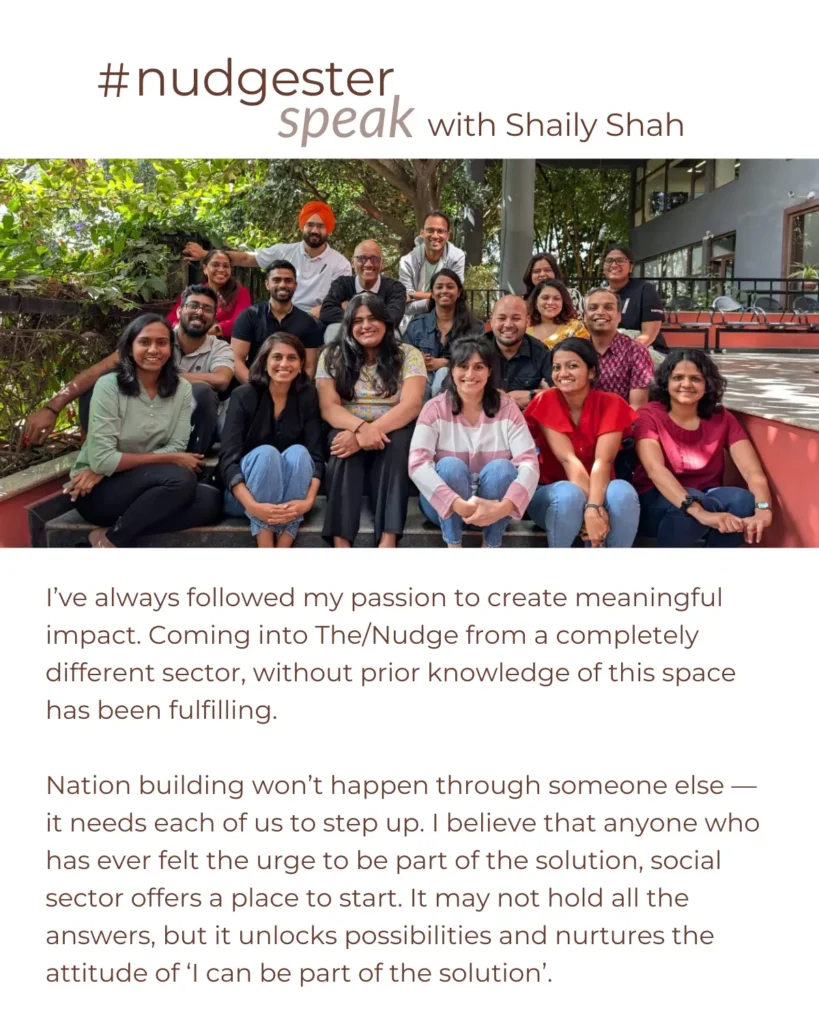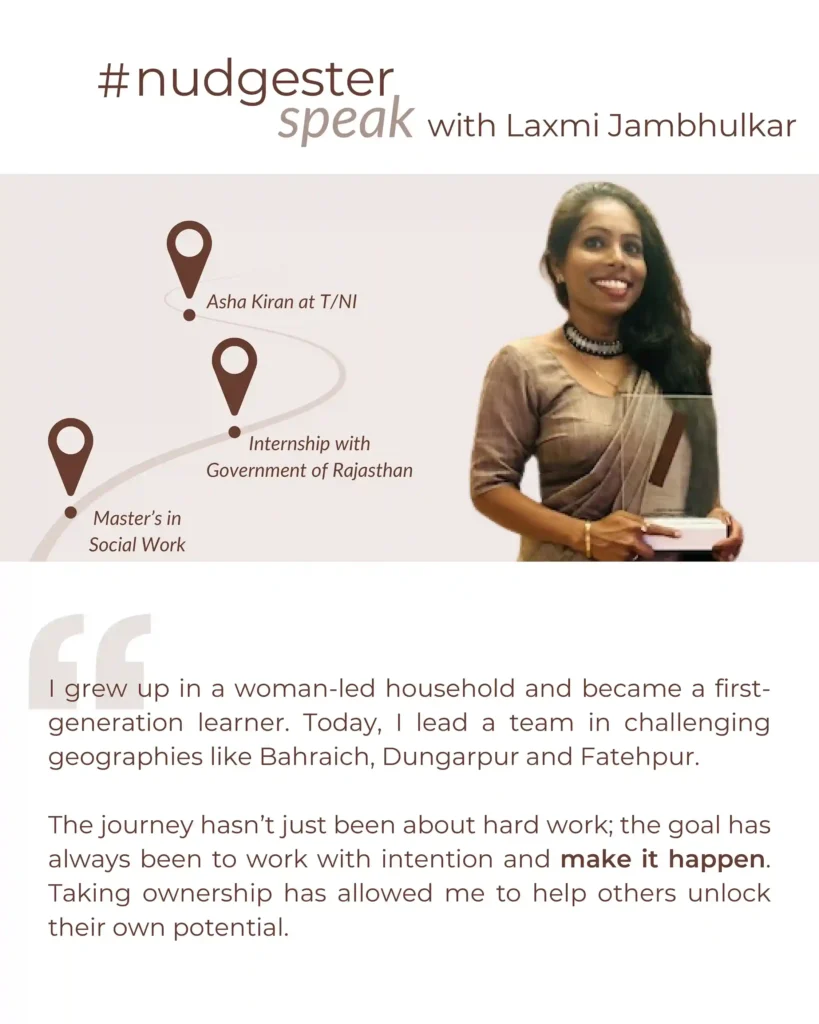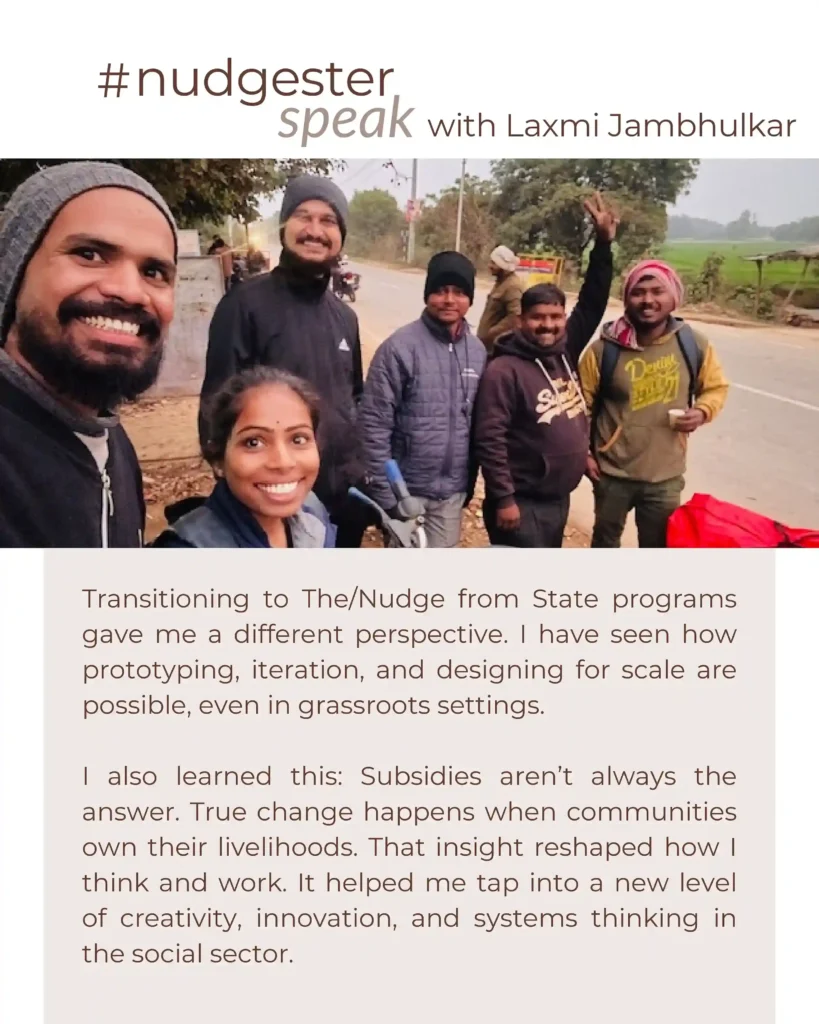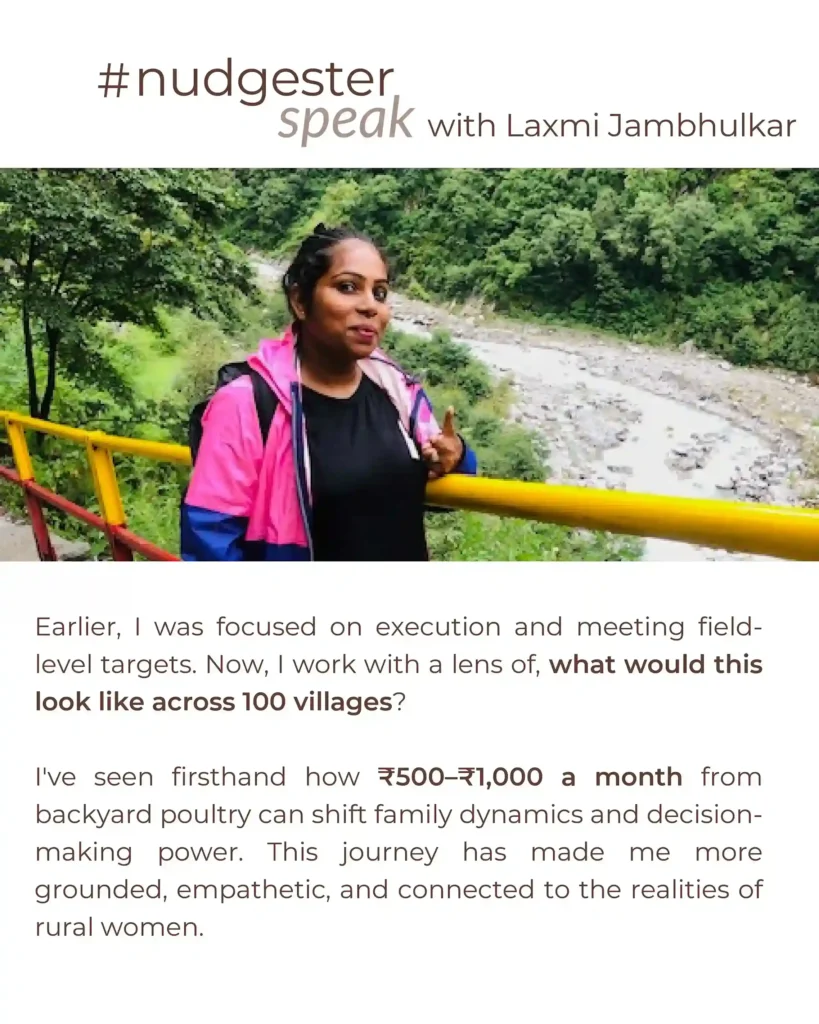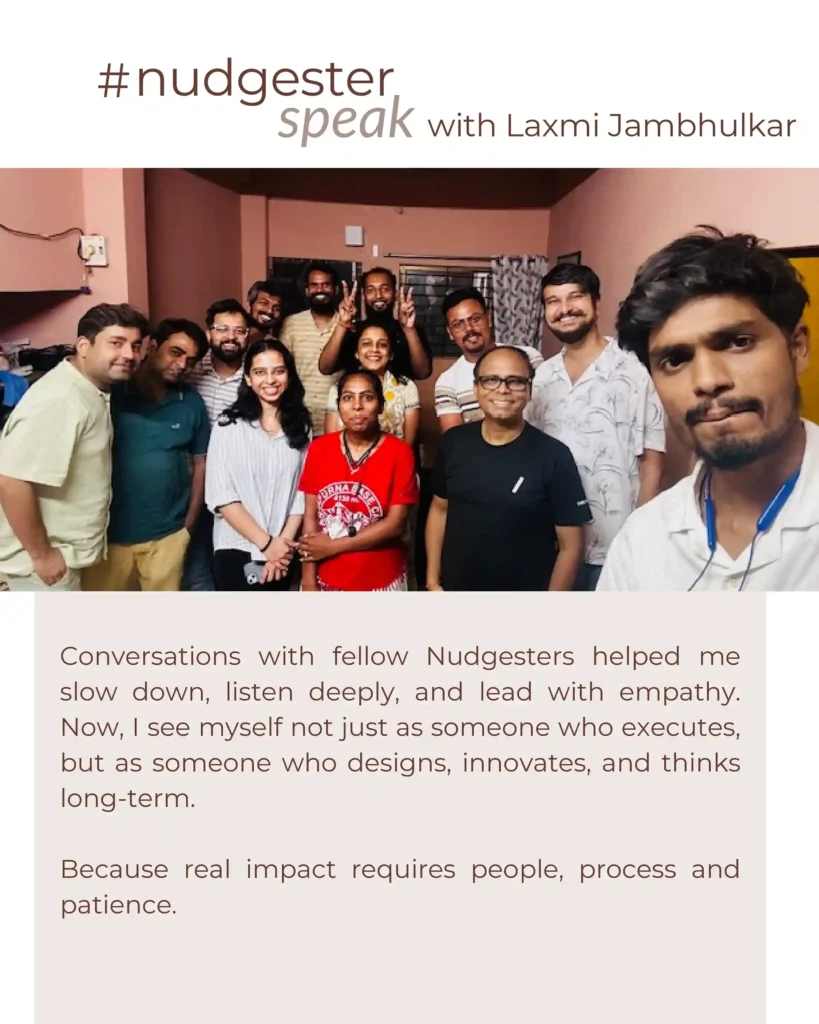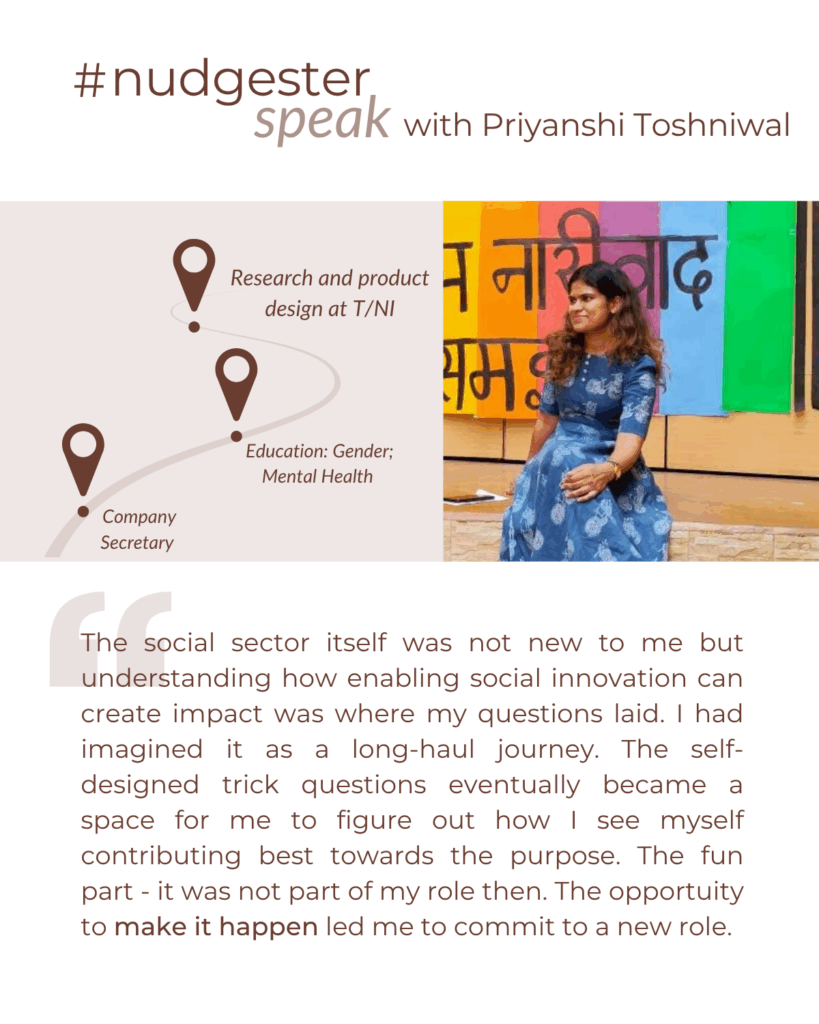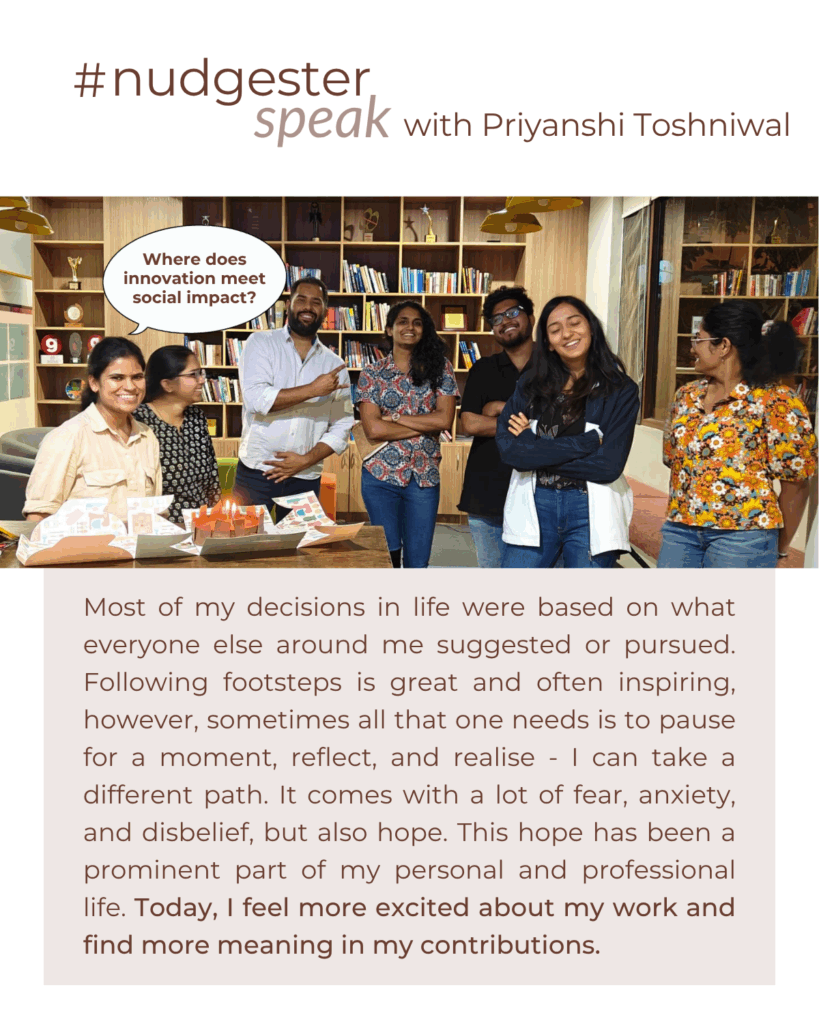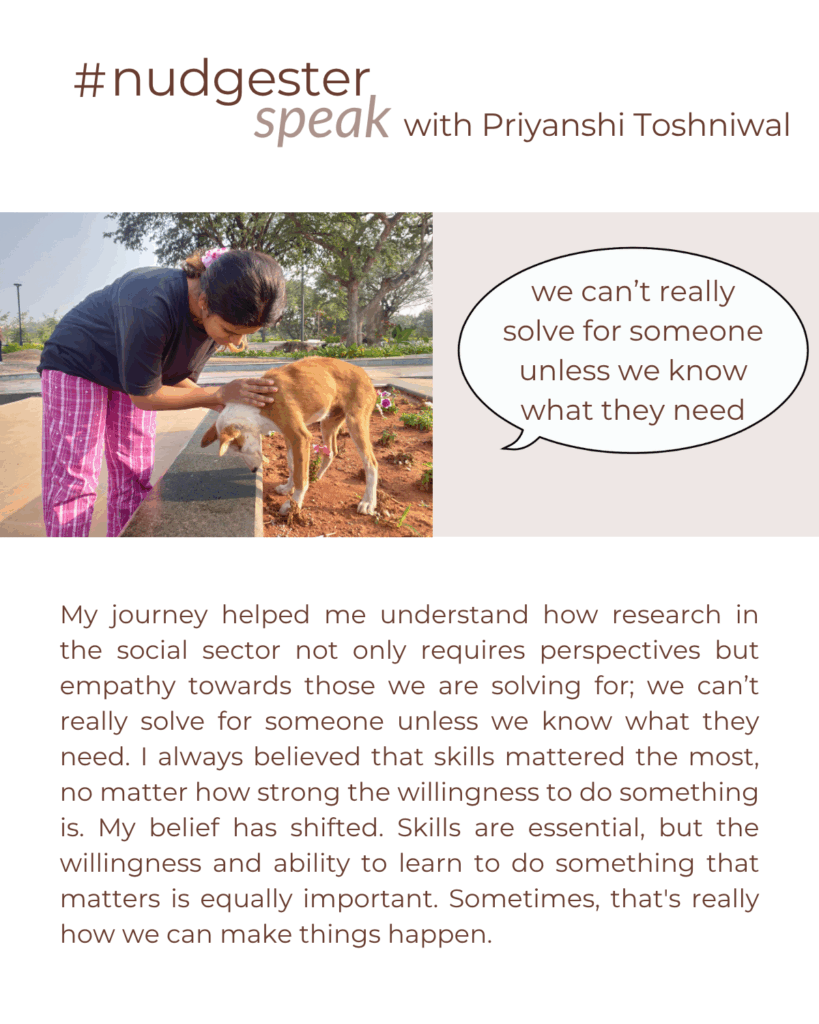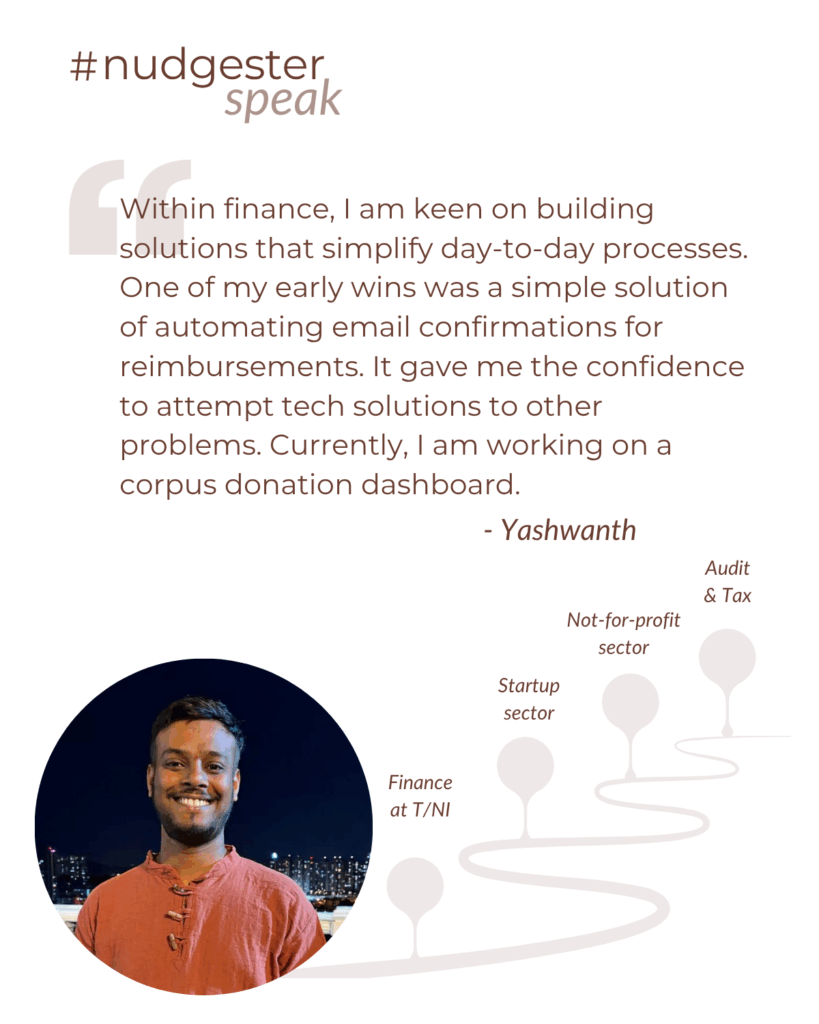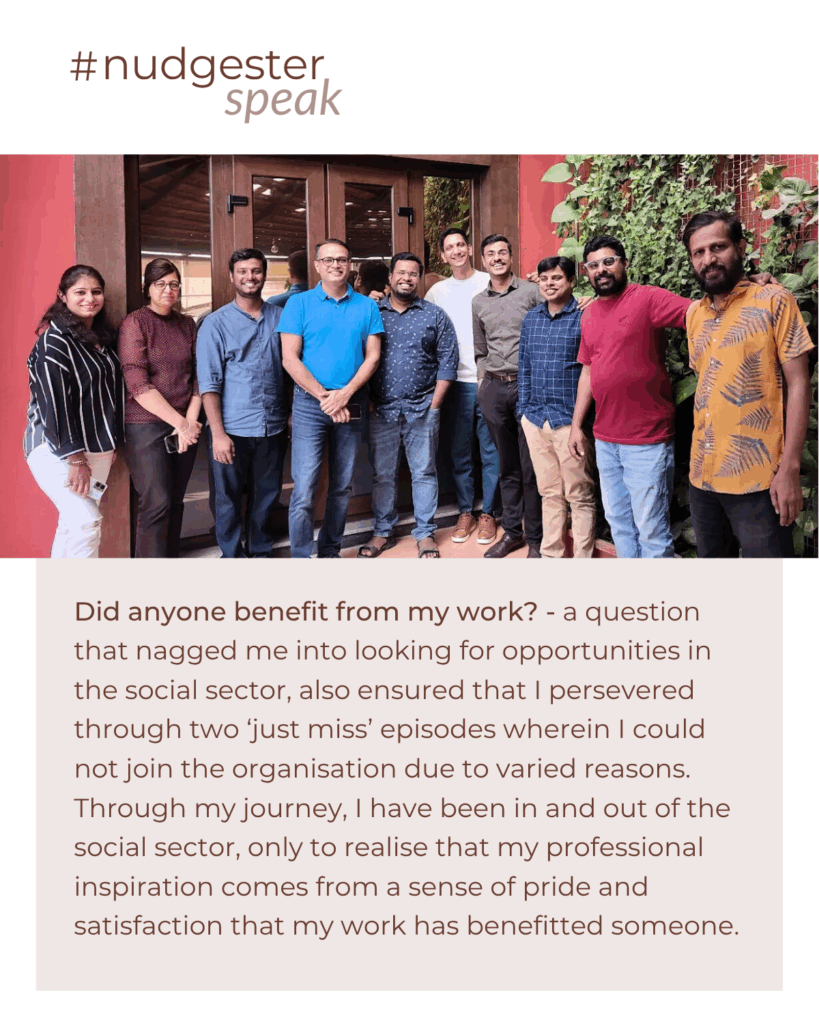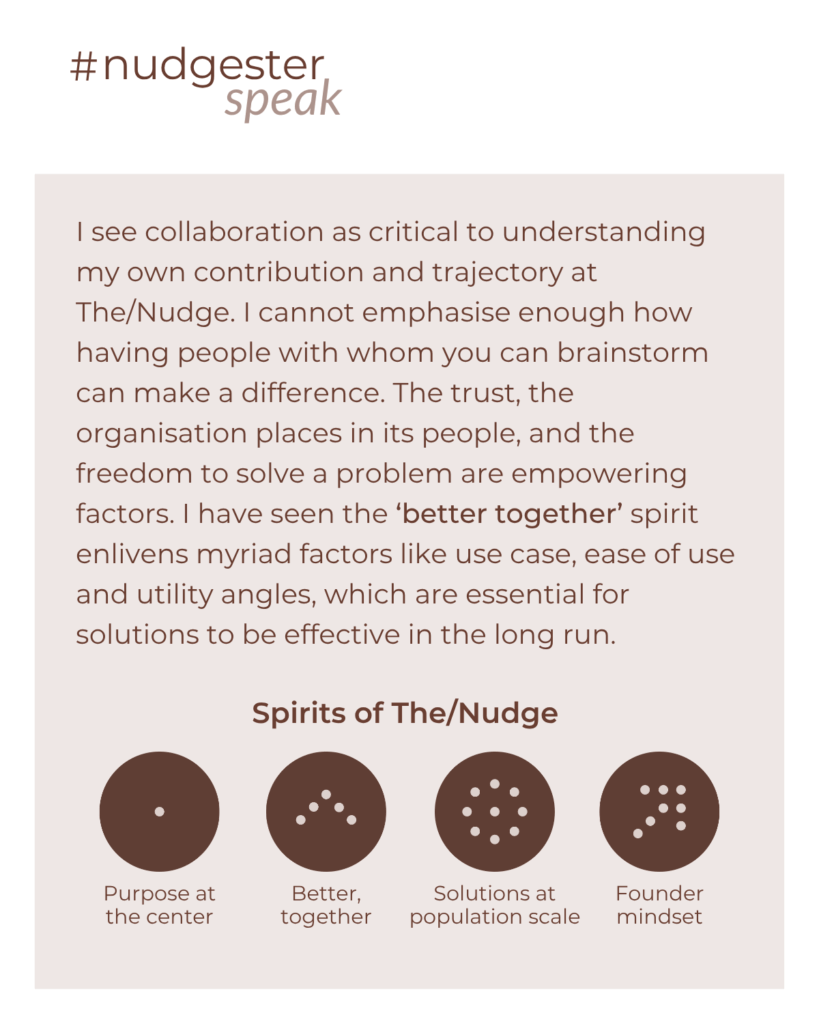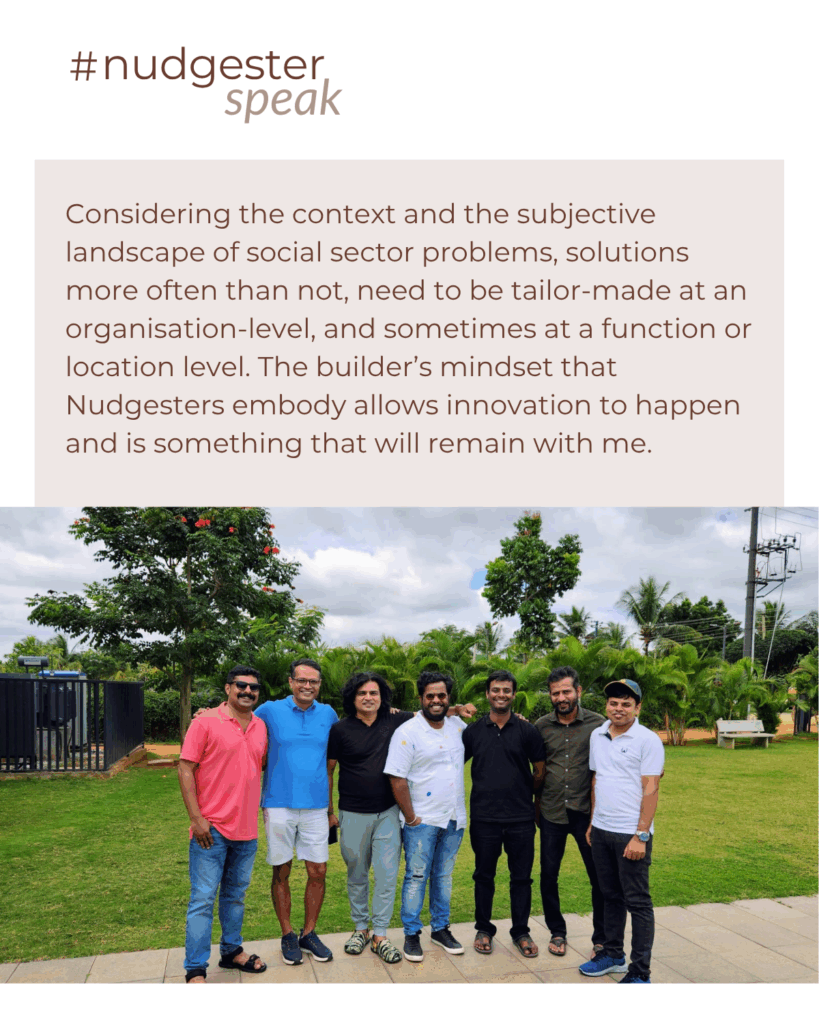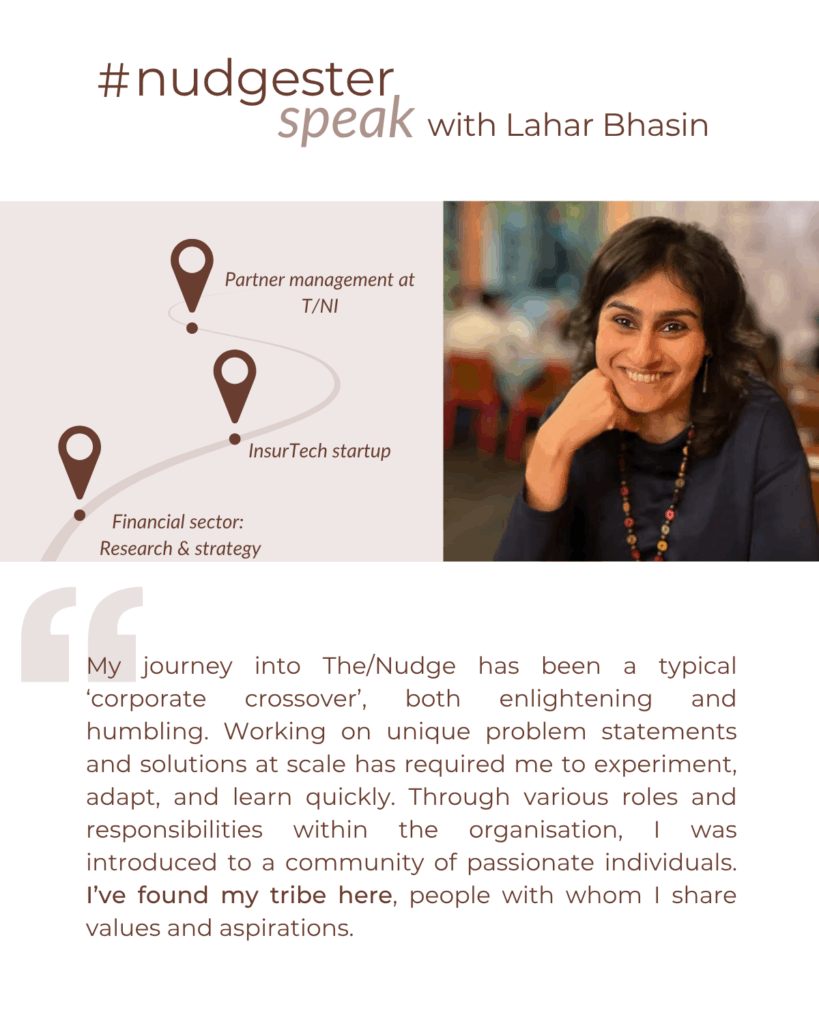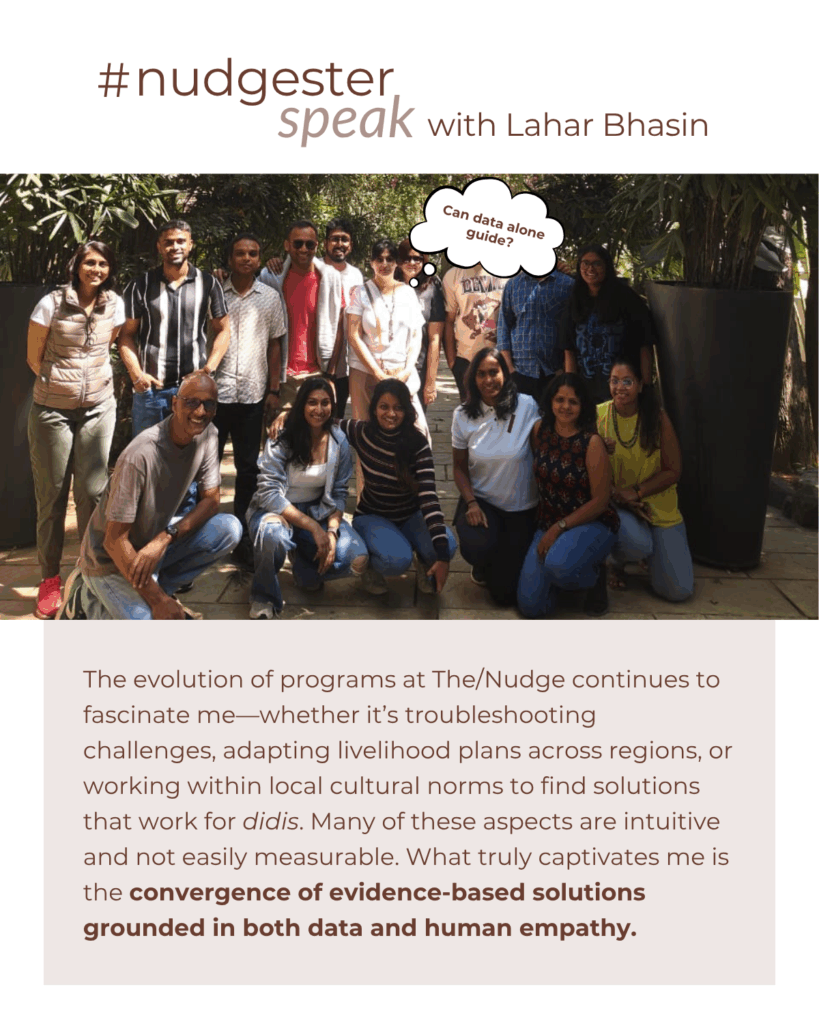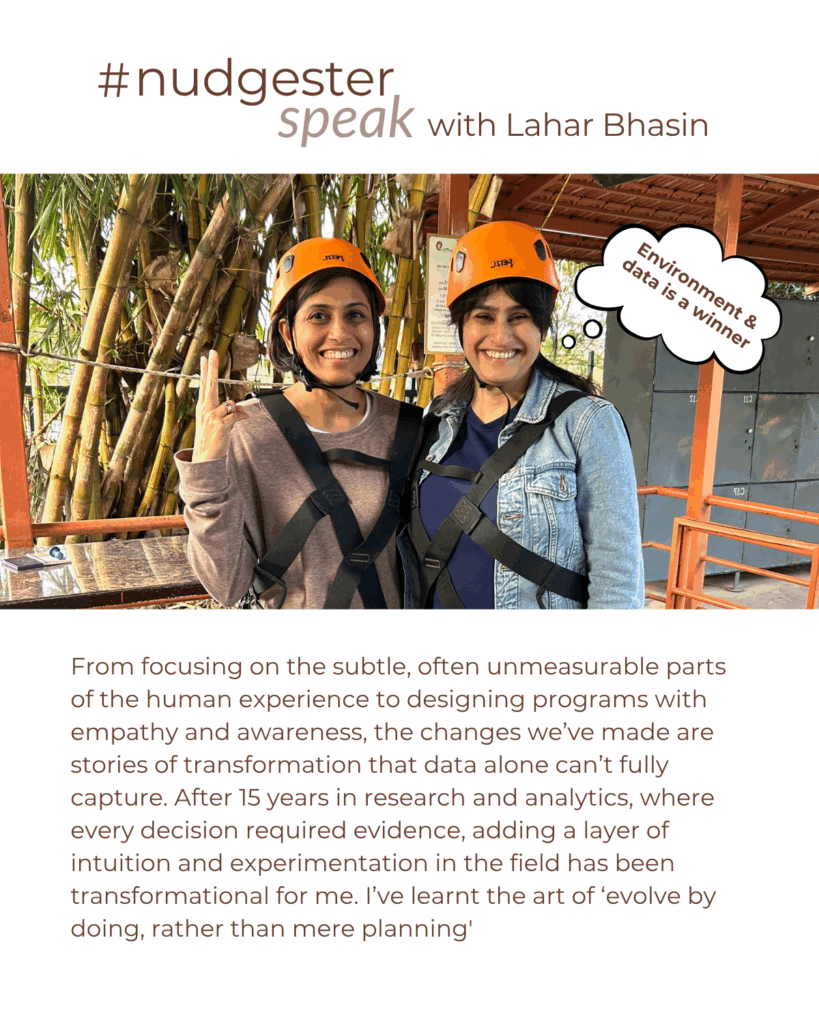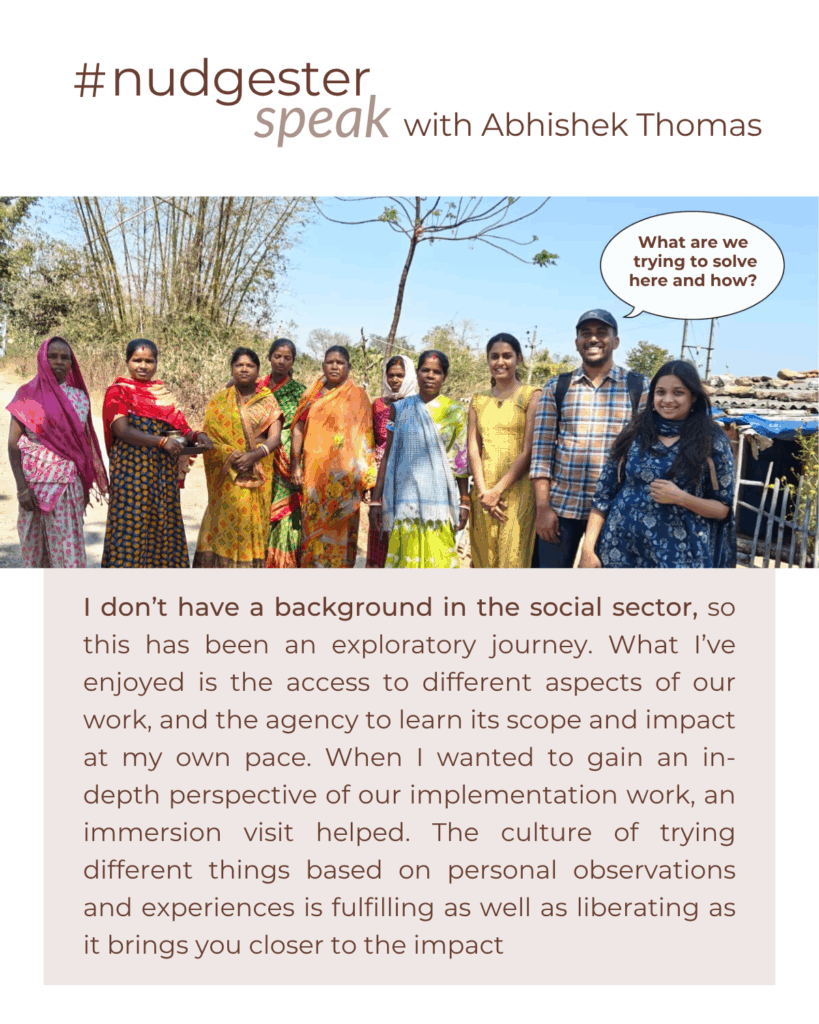Graduation from poverty is not a finish line, it’s a milestone on a longer journey. This blog draws from research and lived experiences to explore how households navigate life after economic inclusion programs, and what determines whether they thrive or struggle.
For many households in extreme poverty, the graduation approach offers a powerful intervention—a ‘big push’ that simultaneously removes multiple barriers to upward mobility. But what happens after the program ends? How do we understand a household’s journey after they graduate out of poverty? What factors enable households to remain in an upward trajectory, while other households may slip-back? How do livelihoods evolve for program participants?
At The/Nudge Institute, we have been grappling with these questions at length. This blog draws insights from our synthesised review of existing literature on medium to long term impact of graduation programs. You can check out the full research review here.
“This time the tomato harvest was bountiful, dada! We could make good profits!”
Shanti didi exclaims excitedly as she lays down a mat for all of us to sit. It’s been two years since she graduated from the first cohort of our Economic Inclusion Program in Jharkhand. Water is scarce in the region, so she can only cultivate her land during the monsoons. Her husband is steadfast in his support, and it helps that their land is near a well. Farming otherwise would be a near-impossible task with their limited resources. For the rest of the year, the couple juggles various jobs, including livestock rearing and agricultural labour at other farms over the remaining months, to meet their expenses.
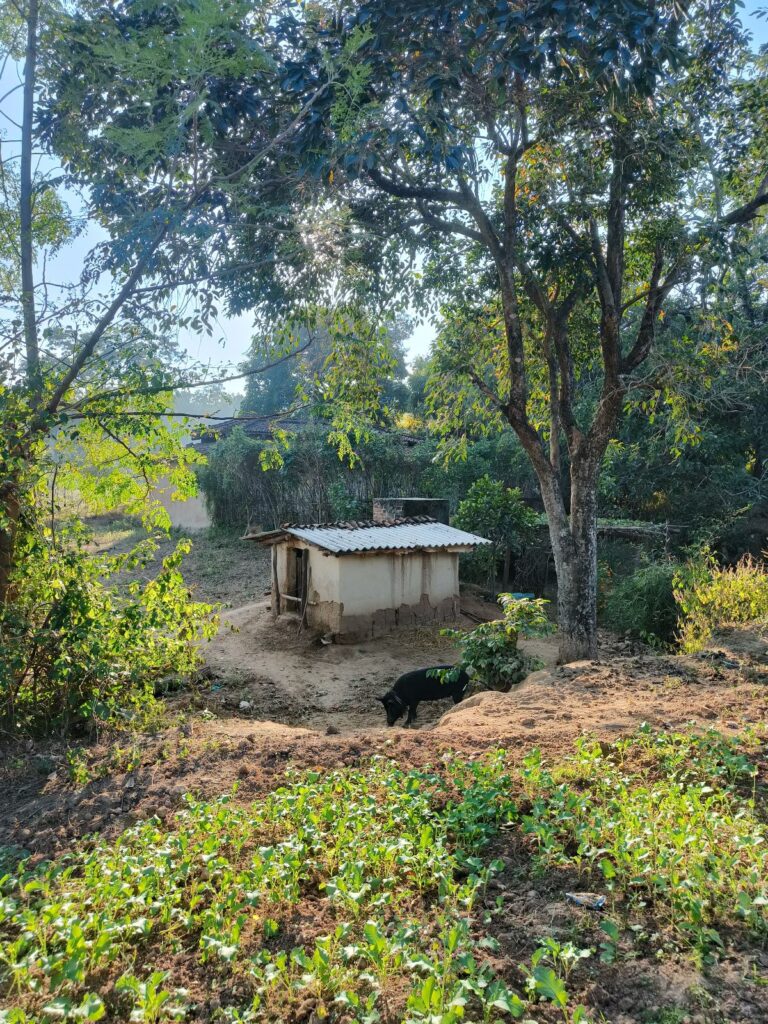
Stories like Shanti didi’s showcase how some households manage to diversify their income sources and gradually build resilience. But for others, the road is more precarious.
Harmaniya Didi, on the other hand, returned from the brick kilns in Banaras just a few days ago. She tells us about the sudden shock that has brought her life to a standstill,
“I slipped while carrying bricks and injured my leg badly. The contractor paid for part of the treatment, but we had to use our savings to cover the rest”.
Earlier didi and her husband were able to come home for the monsoon cropping season. Cultivating vegetables is water intensive, and since there is no irrigation source nearby, they would grow traditional food grains for their consumption. But now, even that seems uncertain as she can no longer stand for long periods. The pigs they had received as part of the program also had to be sold; they needed the money and she cannot look after them along with her two young kids.
When we ask how they plan to manage, she says, “My husband will return to the brick kilns, I will have to manage however I can. I can still make baskets out of bamboo, we’ll make do with that money”.
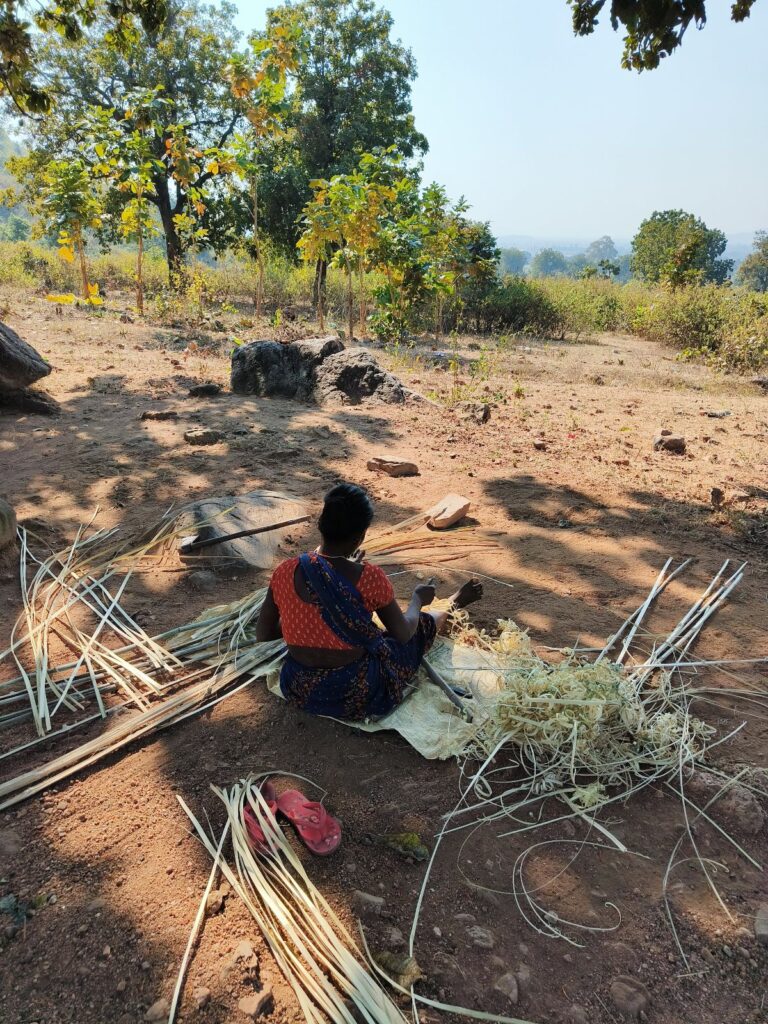
These contrasting realities reflect a key insight from the literature: households do not benefit uniformly from the graduation approach. So, which households manage to graduate and stay out of poverty and which ones don’t?
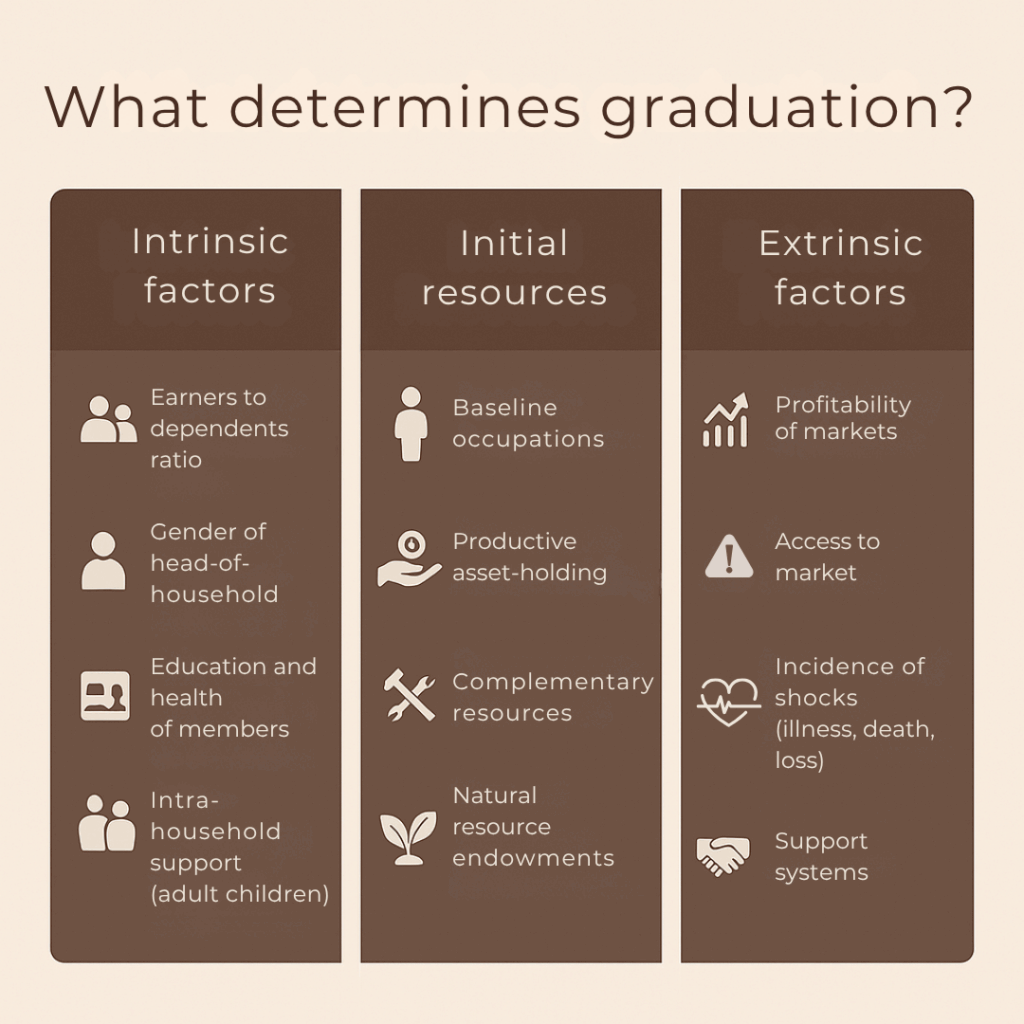
Graduation outcomes are shaped by a combination of intrinsic traits, initial resources, and external conditions. It depends on who they are, what they have, and what surrounds them. Households with supportive family members, baseline assets like land or livestock, and reliable access to markets often gain momentum and stay on an upward path. For others, those dealing with poor health, a lack of adult earners, or frequent shocks like job loss or crop failure -the journey is far more uncertain. These differences often determine whether a household climbs upward or regresses back. In the end, it isn’t just about the program, but everything that surrounds a household’s daily reality.
Research also emphasises that graduation should be seen as a continuous process rather than a one-time milestone; escaping poverty isn’t a one-time event, it’s a journey. When we ask Shanti didi about her plans for the future, she says she wants to do everything to support her children’s education, “We’ll send them wherever learning takes them”. Despite losing several goats to disease, she is determined to buy some more in the coming months. As her financial precarity has reduced, her resilience to deal with losses has grown.
Evidence on the graduation approach highlights its promise in achieving lasting poverty reduction, while also revealing the challenges in maintaining these improvements over time. For the most vulnerable households, programs that provide temporary support may help them get started on this journey, but their long-term success may require support at ecosystem level. This underscores the need for long-term assessments that track shifting livelihood pathways and suggest multi-sectoral strategies to combat poverty. Graduation approach holds considerable potential as a poverty reduction strategy, but its long-term effectiveness relies on interventions that are tailored to local contexts. Successful programs must empower households to convert opportunities into lasting capabilities, ensuring a stable path out of poverty.
If you’re curious to learn more about the factors shaping households’ post-graduation journeys, do check out our full research review!

